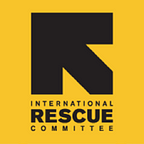A year of broken promises
One year on from the tragic death of Alan Kurdi, what has changed?
On the 2nd of September 2015, the world was shocked by the heartbreaking image of a three-year-old boy, Alan Kurdi, who lost his life in the attempt to seek safety from conflict in Syria.
One year on, inside Syria conditions are worse than ever. Over 11 million Syrians have been forced to flee their home. Tens of thousands of refugees remain stranded in Greece and EU leaders have been on the back foot, either unable or unwilling to rally the resources needed to allow these refugees to move on with their lives.
In the year that has passed, since millions of people around the world joined the call to make refugees welcome, we look back at some of the key moments in Syria and Europe that continue to shape the lives of those refugees.
September
Hungary closes its border with Serbia leaving refugees stranded across the route to northern Europe. Refugees turn to smugglers to make the journey, putting them at even greater risk.
October
Despite winter weather arriving — refugees continue to make the dangerous journey to Europe in search of safety. In October alone over 220,000 refugees and migrants made the journey across the Mediterranean Sea.
November
Europe is rocked by attacks in Paris. Across the world myths about refugees circulate, threatening their safety.
December
Mandy Patinkin visits International Rescue Committee programmes on the Greek island of Lesbos.
“I just don’t get it, how people let this happen to people. How people in different countries all over the world can be frightened of people who’ve suffered so much, who are so in need, who are so desperately asking to just have freedom, justice, and dignity. Just give them a welcome.”
The IRC has been responding on the island of Lesbos since July 2015, where it provides refugees with access to vital information, water and sanitation facilities and protection services.
January
Across the world, millions of refugees start the new year in limbo. During 2015 over a million refugees and migrants made the journey to Europe fleeing conflicts in Syria, Afghanistan and Pakistan, among others.
February
The ‘Supporting Syria & The Region Conference’ is hosted in London. $12 billion is pledged to the region. Co-hosts support the IRC’s call to create a million jobs in the region for Syrian refugees.
The IRC works with Syrian refugees and the host population in Jordan, Lebanon, Iraq and Turkey. In 2015 the IRC helped 1.7 million people in Syria, Iraq, and neighbouring countries with vital assistance, including healthcare, services for vulnerable women and children, education, and economic support.
March
9th
FYRO Macedonia closes its border with Greece. An informal camp near the village of Idomeni swells, eventually providing a home for around 13,000 people.
15th
Syria marks five years of conflict. Around half of all refugees arriving in Greece are from Syria. Without an end to the conflict, refugees will continue to flee their homes in search of a safer life.
20th
The EU-Turkey deal is established. Thousands of refugees are left stranded in Greece. Many are unexpectedly divided from family members who have already made the journey to northern Europe.
EU leaders agree to ramp up the relocation programme with a goal of relocating 20,000 refugees from Greece by the end of May. As of the end of August only 2,816 refugees have been relocated.
April
After a period of 48 hours in which a person loses their life every 25 minutes, there is a renewed call for a ceasefire in Syria.
May
Idomeni camp in northern Greece closes. Refugees are all relocated to official, government-run sites across the country. The IRC expresses its concern with conditions at some of the new sites.
The IRC is working in nine locations across Greece where it has five safe spaces for women as well as three safe healing and learning spaces for children.
June
Refugee Week takes place. UNHCR announce that globally 65 million people are displaced from their homes. Almost one in six of those are Syrian.
July
Members of the Game of Thrones cast visit the IRC’s programmes on the Greek island of Lesbos and draw attention to the refugee crisis.
“They’re just people like you and me and they don’t want to live in a different country their whole life. They want to go home but they can’t.”
August
Airstrikes hit an IRC-supported hospital in Syria, killing six people including two children. David Miliband, IRC CEO & President, condemns hospital bombings and ‘unspeakable humanitarian abuse’ in Syria.
Will you welcome refugee families?
Our generation will be judged by whether we choose to open our hearts to welcome these refugees, or leave them struggling to survive.
Two major global summits in September present an opportunity: the Leaders’ Summit on Refugees, hosted by President Obama, and the UN Summit on Refugees and Migrants.
Please pledge to #ChooseHumanity. Thank you.
Refugee Crisis: How the IRC helps
The International Rescue Committee is providing relief to millions of uprooted people inside Syria; in neighbouring Iraq, Lebanon, Turkey and Jordan; in Afghanistan; in Greece and Serbia; and in our resettlement offices in the US, helping people to survive, reclaim control of their future and strengthen their communities. Learn more about the IRC’s response to the refugee crisis. Follow us on Twitter, Facebook and Medium.
